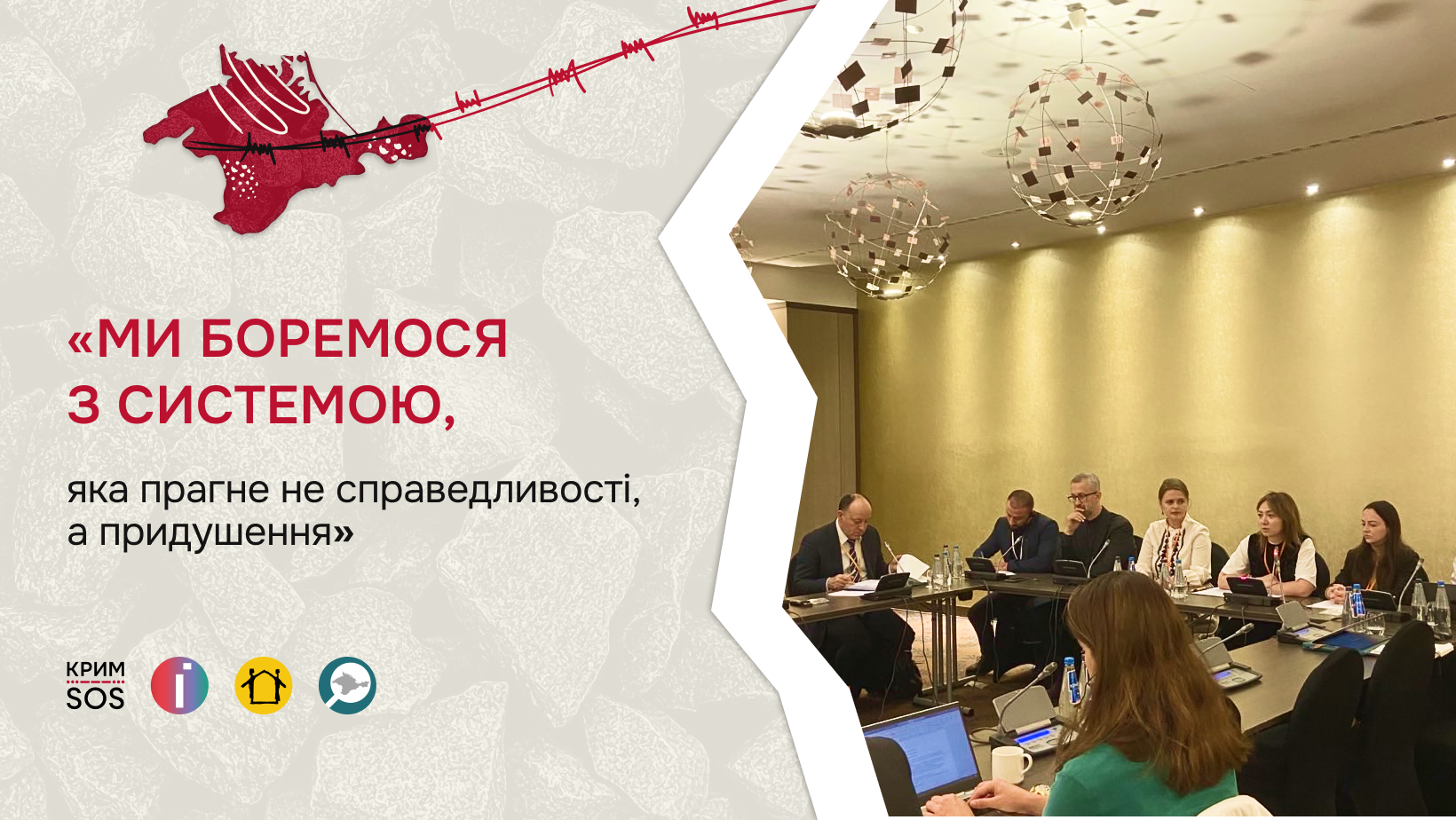“We are fighting a system that seeks not justice, but oppression”: the issue of Crimea was raised at the Warsaw Conference of the OSCE
3 / 10 / 2024
Religious persecution, violation of the right to freedom of speech, illegal imprisonment, cruel detention conditions and torture of Kremlin prisoners. These topics were raised by Ukrainian human rights defenders at the event “Life in captivity: 10 years of occupation of Ukrainian Crimea and resistance to russian aggression” within the framework of the annual OSCE conference in Warsaw.
Representatives of the Ukrainian human rights organizations CrimeaSOS, ZMINA, the Crimean Human Rights Group, the brother of political prisoner Ali Mamutov – Fevzi Mamutov, and former political prisoner, deputy head of the Mejlis of the Crimean Tatar People, Nariman Dzhelial, took part in the discussion.
“Ali is not a criminal; he is a symbol of our struggle for freedom and dignity. He, like many other of our brothers and sisters, always defended people’s rights, their dignity, their inalienable right to be free in their native land. But that is exactly what he is being punished for. We are not talking about justice. We are fighting a system that seeks not justice, but oppression. A system that uses the courts as a weapon against those who dare to speak the truth and defend what they own”, –Fevzi Mamutov said during the event.
Viktoriia Nesterenko, project manager of the ZMINA Human Rights Centre, noted that human rights defenders have so far recorded 218 victims of politically motivated persecution, which is a significant figure for such a small territory of Crimea.
“In addition to the fact of illegal imprisonment, it is important to pay attention to the conditions of detention of political prisoners, because they are often tortured, kept in inhumane conditions and penal isolation cells, and do not have access to medical care. And they were deported to colonies on the territory of russia very far from their homes and families”, – she emphasized.
Like Viktoriia Nesterenko, Nariman Dzhelial emphasized that one of the most common violations of the rights of prisoners is the failure to provide medical care and talked about how he became ill in captivity. He also emphasized the need to release political prisoners who are currently serving their sentences despite suffering from a number of chronic diseases, being disabled and being in serious condition.
“While in prison, I met many political prisoners whose names are heard at various international human rights events and platforms. And most of them claim that they were tortured”, –Nariman shared.
The event also covered discussion on the systematic persecution of religious groups and independent journalists in Crimea.
CrimeaSOS project coordinator Sabina Ilias emphasized that those religious communities and their representatives that the occupiers cannot take under control are recognized as illegal, which leads to the application of anti-extremist and anti-terrorist legislation to persecute their members.
“In both cases, with the Christian and Muslim religions, we can identify persecution by ethnicity. Juggling its legislation, russia labels disloyal Crimeans, Ukrainians and Crimean Tatars as terrorists and extremists, creating an artificial threat and enemies, fuelling inter-ethnic tension and an atmosphere of fear”, –the representative of CrimeaSOS said.
International advocacy manager of the Crimean Human Rights Group Iryna Baran said that during the full-scale invasion, the Crimean Human Rights Group documented at least 850 administrative proceedings under Article 20.3.3 of the code on administrative offences of the russian federation (“discrediting the russian army”).
“I would like to emphasize that after the full-scale invasion, the situation with human rights, in particular with regard to freedom of speech, worsened, as the occupying russian authorities expanded the tools of pressure on citizens. They introduced new legislation that allows them to fine or even imprison individuals for any public expression of a pro-Ukrainian position”, – she noted.
The event took place within the framework of the OSCE Warsaw Conference on the Human Dimension with the support of the Permanent Representations of Ireland and Latvia, as well as the Human Rights House Foundation.